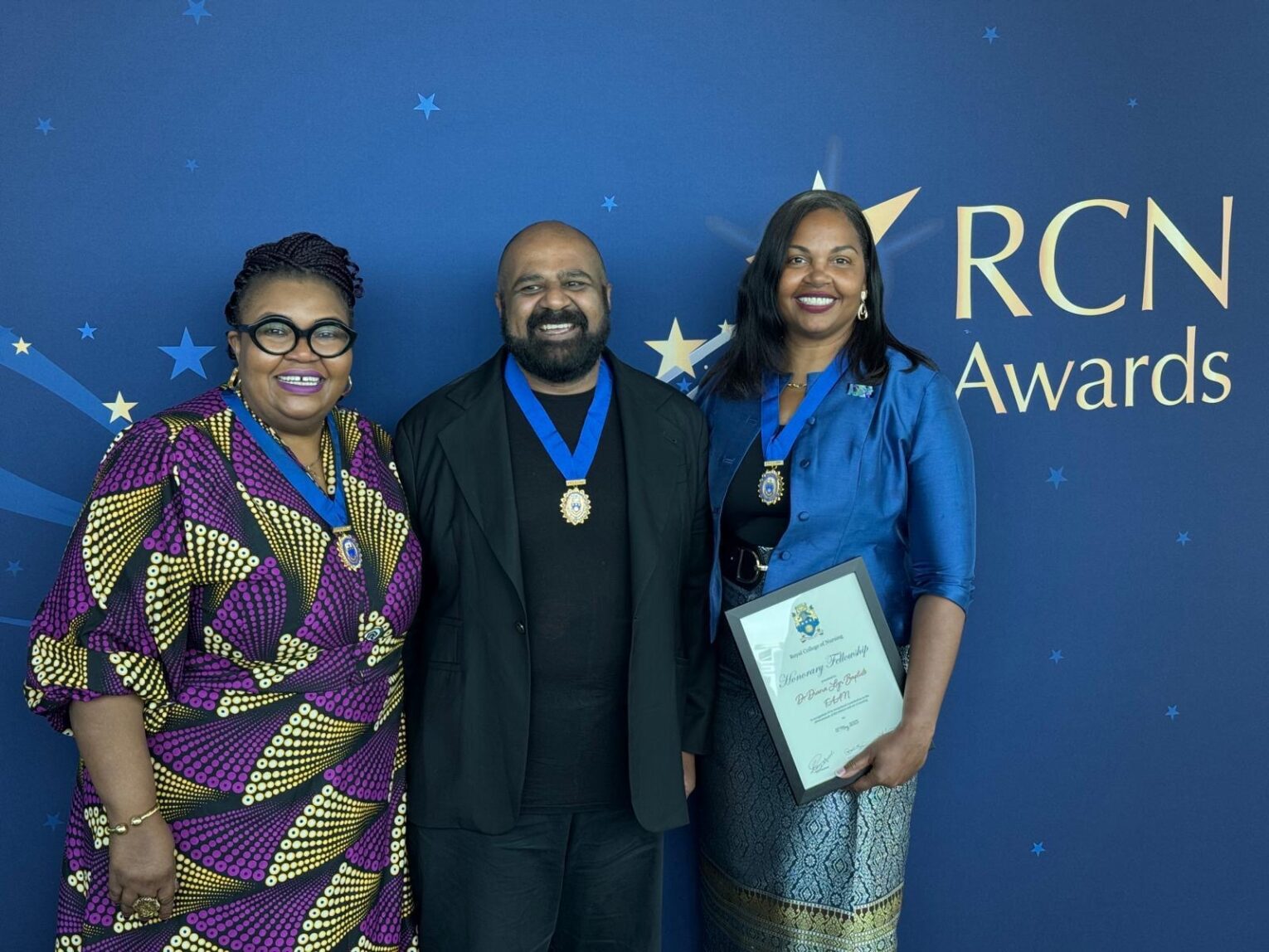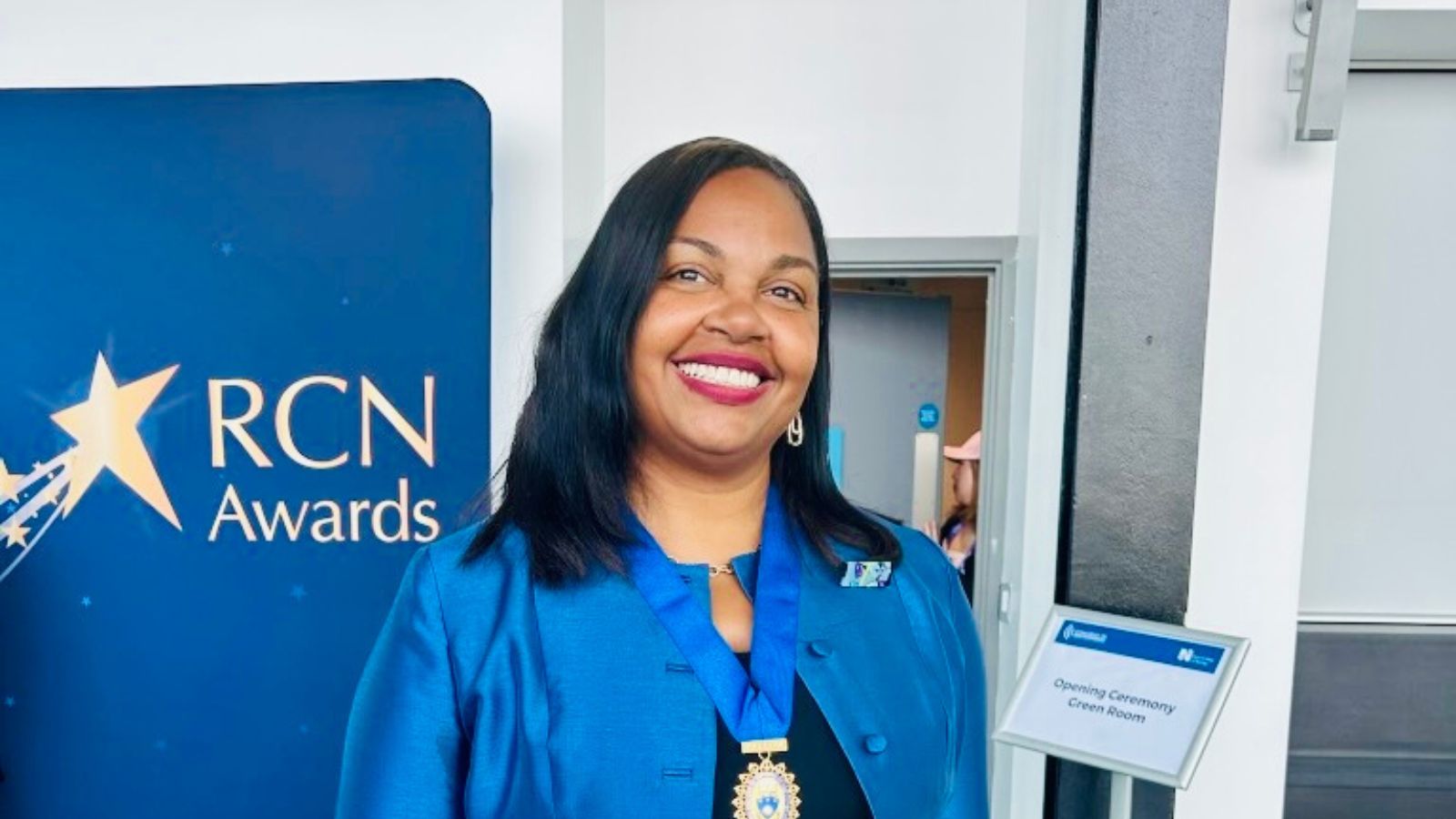When I stepped into nursing school in 1996, I had a simple yet meaningful goal—to help people. My vision was clear; work at a hospital, provide compassionate care, and return home to care for my young family. Nursing, to me, was deeply personal. It was about the hands-on connection with patients, the moments of reassurance, and the satisfaction of knowing I had made a difference. As a staff nurse, I thrived in the fast pace of bedside care on a cardiac unit, finding purpose in each patient interaction.
Then, somewhere around 2003 or 2004, everything changed.
While working at Mercy Hospital in Baltimore, I encountered evidence-based practice for the first time. It was a revelation. I realized that nursing extended far beyond the confines of a hospital room. There was a broader, more powerful platform, one that ensured patients received high-quality care through research, innovation, and systemic improvements. This realization reshaped my career trajectory.
Fast forward to today, and I find myself in a place I never could have imagined. I am now a faculty member at the top nursing school in the United States, the Johns Hopkins School of Nursing, where my passion for nursing and caring for patients remains unwavering. However, my focus has shifted. Instead of direct patient care, I now guide, mentor, and collaborate with expert researchers and clinicians. Through research and quality improvement projects, I work to enhance healthcare delivery, ensuring equitable and effective patient care across diverse communities.
Over the years, I focused my scholarship in promoting cardiovascular health, particularly in underserved populations. This work has taken me far beyond the hospital setting—across the United States and internationally to the UK, Ireland, Thailand, China, and Australia. Each opportunity to disseminate my findings reinforced the impact of research-driven practice in transforming lives.
My research on cardiovascular risk identification among Black adults gained national recognition, earning accolades from the American Heart Association, earning me fellowships with the Preventive Cardiovascular Association (FPCNA), and the American Academy of Nursing (FAAN). With this recognition came a deeper understanding that my work was expanding beyond borders, reaching communities worldwide. It became clear: my life was about to change in ways beyond my imagination.
As my work continued to receive international recognition, new opportunities steadily emerged. The Royal College of Nursing (RCN) in the United Kingdom—much like the American Academy of Nursing—honors outstanding leadership and excellence in the profession through its prestigious fellowships. So, how did I get there?
Each year, the Royal College of Nursing (RCN) honors nurses worldwide who have demonstrated exceptional dedication with the Honorary Fellowship, the organization’s highest recognition for service to the nursing profession. This year, I am proud to share that I was among five influential nursing figures bestowed with this prestigious award. I was nominated for my contributions in identifying and addressing health disparities related to cardiovascular disease among underserved populations. A colleague recognized the impact of my work in teaching, practice, and scholarship and put forth my nomination. With the support of Deans, directors, and mentors, my nomination was accepted, marking a transformative moment in my career.

Now, as a Fellow of the Royal College of Nursing (FRCN), I have the privilege of contributing to the organization’s mission to amplify the voice and influence of nursing globally. Together with other distinguished professionals, Fellows collaborate with the College to shape policy, advance practice, enhance education, and promote research. Through these efforts, we lead in driving meaningful change that benefits nursing, our patients, and communities, thereby advancing the art, science, and practice of nursing.
To be recognized among such esteemed nursing professionals is a testament to how nursing, when coupled with research, advocacy and service, can transform healthcare at every level. I’m also proud to represent the Johns Hopkins School of Nursing through this fellowship, which allows me to showcase our institution’s commitment to excellence and leadership; with a goal of making an impact on the betterment of the patients, families, and communities that we serve both locally and globally.
What began as a simple dream in becoming a nurse has evolved into a mission—one that is bigger than I ever envisioned. From bedside care to global scholarship, my journey in nursing has been shaped by passion, resilience, and an ever-growing desire to create meaningful change. And though I never imagined being here, now, I do.
Acknowledgements:
I would like to thank the following people for their enduring support: Dean Sarah Szanton, Vice Executive Robert Atkins, Professor Cheryl Himmelfarb, Professor Yvonne Commodore-Mensah, and Professor and Dean Emerita Patricia Davidson of the Johns Hopkins School of Nursing. And a special thanks to my global esteemed colleagues for supporting my nomination, Professor Calvin Moorley of London South Bank University, United Kingdom; Professor Roxanne Crosby-Nwaobi, NIHR Clinical Research Facility/Moorfields Eye Hospital, NHS Foundation Trust, United Kingdom; Professor Fiona Timmins, University College of Dublin, Ireland, and Dr. Helen Walthall, Oxford University Hospitals, NHS Foundation Trust, United Kingdom, and Professor Debra Jackson of the University of Sydney, Australia. I could not have achieved this incredible honor without your mentorship, guidance, support, and encouragement.
Read More:
- Global Service Learning: Stories From Nepal
- Where does Complementary Medicine Fit into Healthcare?
- She Knows the Score on Eating Disorders

